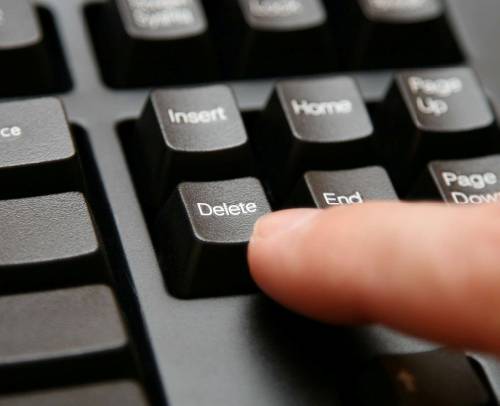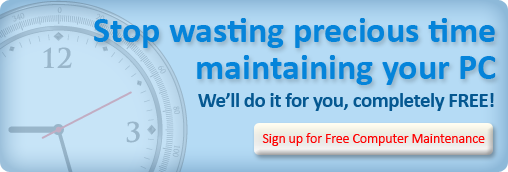 Over time, your Windows PC will build up temporary files. What are these temporary files for, you ask. Well, every time you run a program, temporary files are created periodically for backup purposes. This way, if the program happens to crash, the temporary files can potentially help you pick back up where you left off.
Over time, your Windows PC will build up temporary files. What are these temporary files for, you ask. Well, every time you run a program, temporary files are created periodically for backup purposes. This way, if the program happens to crash, the temporary files can potentially help you pick back up where you left off.
These temporary files are not automatically deleted after the program is shut down, so if you do not clean out these temp files regularly, you may have thousands of unnecessary files stored on your computer.
As you probably already know, these additional, unneeded files are taking up valuable space on your hard drive, which can ultimately contribute to much slower PC performance. There are many tools you can pay for that help remove temporary files from your PC, but this is easily a task you can perform yourself in Windows XP, Windows Vista, or Windows 7.
Your first step should be to used the Disk Cleanup tool pre-installed with your Windows computer.
- Click Start > Programs > Accessories > System Tools and then select Disk Cleanup.
- After running an initial scan, Windows will alert you to the approximate amount of space that temporary files are taking up on your hard drive.
- Check ALL of the boxes in the pop-up window, then click OK.
This solution will help remove the majority of the temporary files stored on your computer. Since many programs may store temporary files in locations other than those the Disk Cleanup tool check, you will also want to perform a search for additional temporary files that you can manually delete.
- Open My Computer (or Computer in newer Windows versions).
- In the search box, type the following characters: *.tmp (be sure to include the asterisk). This will search the entire hard drive so be patient if it take a few minutes.
- After the results are shown, click the first result and scroll all the way to the bottom. Now hold down the SHIFT button and click the last result. This should select every temporary file that has been shown in the search.
- With all of these files still selected, press and hold down SHIFT, then click DELETE.
This should permanently remove all of the temporary files. You should now be good to go, free of temporary files, and hopefully experiencing a faster computer.
Be sure to perform this task on a regular basis to best ensure that temporary files are not slowing down your PC. We recommend doing this at least once a week or every other week.
Feel free to share any other tips for removing temporary files in the comments below.
